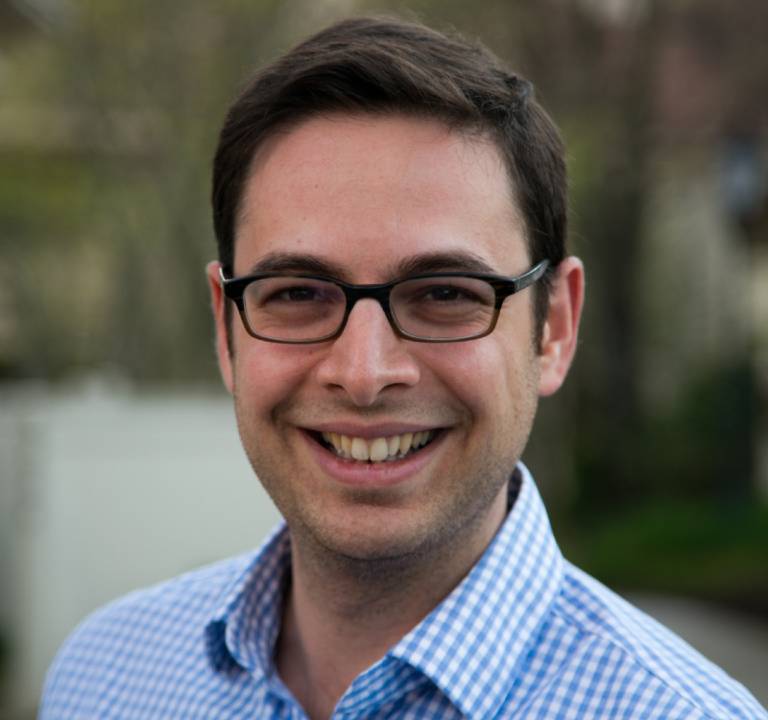A clinician-researcher’s career story
After completing a Masters here at UCL, Dr Neir Eshel got his MD-PhD from Harvard, and is now Assistant Professor of Psychiatry and Behavioural Sciences at Stanford.

27 September 2022
We asked Neir to share his experiences and top tips for those wanting to follow a similar path.
Tell us about the journey you’ve taken to reach your current position.
During my MSc at UCL's course in Clinical Neuroscience, I became convinced I wanted to be both a doctor and a researcher. This conviction was entirely due to the remarkable environment in Queen Square, where cutting-edge research is done steps away from a dedicated hospital for neurology and neurosurgery. I applied to MD-PhD programs in the US and ended up attending Harvard. I then moved to Stanford to pursue a residency in psychiatry, with plenty of built-in time for research. After residency, I stayed at Stanford to join the faculty.
Although this path might seem linear, there were lots of ups and downs along the way. The most important thing for me was choosing good mentors who could role model the type of career I wanted to have. And always choosing research environments where I felt people were passionate, dedicated, and smarter than me.
What does a normal working day look like for you?
Each Wednesday I see patients in a clinic that focuses on the LGBTQ+ community. The rest of the week I run a small lab that uses mouse models to study the neural circuits underlying addiction and aggressive behavior.
What are the best bits about your job?
The people! I love getting to wear lots of different hats, mentoring students one day, treating patients the next, and always collaborating with colleagues who are passionate about solving mysteries and getting things right.
What are the biggest challenges?
It's a busy life, being an academic. You can never 'shut off'. I find myself answering e-mails and thinking up projects even while on vacation.
What’s the progression like?
There's a great demand for physician-scientists: people with training in medicine as well as research. But the path is very long. Usually by the time we get to our first faculty job, we're in our very late 30s or early 40s.
What top tips would you pass on to a researchers interested in this type of work?
Find mentors whom you admire and reach out to them! I say 'mentors' on purpose: you shouldn't have just one. And ideally they should be at lots of different institutions. Go to conferences and don't be afraid to e-mail folks out of the blue.
Are there any specific tips you would give to people graduating into an uncertain employment landscape?
Sometimes the best fit for you might not be what you first envisioned. You have so much to contribute; keep an open mind!
 Close
Close

